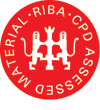Three quarters of executives say that stress adversely affects their health and the Health and Safety Executive has indicated that stress is likely to become the most dangerous risk to business in the early part of the 21st century. So in this month’s programme, we’ll be looking at the legal duties that employees could use as a basis for a stress claim against their employer and in particular the law relating to bullying and harassment. This will include an update on the recent changes to the Sex Discrimination Act concerning harassment. Barrister Ed Williams of Cloisters chambers takes us through the issues.
The notes provide a legislative overview of protection from bullying in the workplace with reference to relevant cases.
About the contributor(s)
Ed Williams is a barrister with Cloisters chambers and is regularly instructed for individuals, trade unions, local authorities, large national and multinational companies and charities. He has argued employment, discrimination and trade union cases in the Employment Tribunal, the EAT, the County Court and the High Court, as well as being led in the Court of Appeal.
In the last year, Ed has been instructed in several high-value whistle-blowing cases involving large multi-national companies and has appeared in several cases in the EAT dealing with the burden of proof in race and disability discrimination cases. He was junior counsel in the Court of Appeal representing the Fire Brigade Union on whether fire-fighters are contractually obliged to co-respond.
Ed is co-author of the chapter on Employment Tribunal Procedure and the Dispute Resolution Regulations in Sweet and Maxwell's Discrimination Law for Employment Lawyers and contributor to Liberty's website on employment rights. Ed has also re-designed the College of Law's PSC Employment Law Practice Course. He can be contacted at: ew@cloisters.com
 Disclaimer: NBS TV programmes are the intellectual property of RIBA Enterprises and it shall be a breach of this right to copy, or in any way exploit commercially or show in public any of the programmes without the express permission of RIBA Enterprises.
Disclaimer: NBS TV programmes are the intellectual property of RIBA Enterprises and it shall be a breach of this right to copy, or in any way exploit commercially or show in public any of the programmes without the express permission of RIBA Enterprises.
